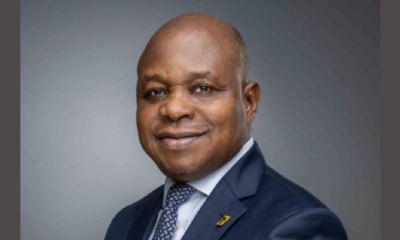- Bitcoin ‘Creator’ Races to Patent Technology
The man who last year made global headlines by claiming to be Satoshi Nakamoto, the creator of bitcoin, is working with a fugitive online gambling entrepreneur to file scores of patents relating to the digital currency and its underlying technology, blockchain.
Craig Wright, the Australian computer scientist who made the Satoshi claim, has the backing of Calvin Ayre, a wealthy Canadian entrepreneur, according to people close to Wright and documents reviewed by Reuters.
Ayre has been indicted in the United States on charges of running online gambling operations that are illegal in many U.S. states — an accusation he rejects.
Wright’s expertise combined with Ayre’s support make a potentially formidable force in shaping the future of bitcoin and blockchain, the ledger technology that underlies digital currencies.
Wright and his associates have lodged more than 70 patent applications in Britain and have plans to file many more, according to documents and emails, and sources with knowledge of Wright’s business.
The patents range from the storage of medical documents to Wi-Fi security, and reflect Wright’s deep knowledge of how bitcoin and blockchain work.
Their total compares with 63 blockchain-related patents filed globally last year and 27 so far this year by multinationals from credit card companies to chipmakers, according to Thomson Innovation.
Neither Wright nor Ayre would comment for this story on their business relationship, details of which are revealed here for the first time, or their goals. But their interest in bitcoin and blockchain highlights two key trends.
First, an increasing number of entrepreneurs believe blockchain, which can circumvent the need for big financial intermediaries, will challenge traditional payment systems.
Various banks are investing large sums to explore how blockchain could revolutionize payment systems and cut costs.
Bitcoin involves sending payments directly, securely and potentially anonymously between two people’s digital wallets, whereas all mainstream transactions, including those using intermediaries like PayPal and credit card lenders, run through banks and usually require named accounts and verification.
Second, blockchain has the potential to defy authorities trying to enforce borders and national regulations — and it already does so in areas such as online gambling. In internet chat rooms some online gamblers say that using bitcoin enables them to disguise their identity and transactions.
The confidentiality conveyed by the currency is one source of its popularity. Bitcoin hit a record high this week, partly because of speculation that the first bitcoin exchange-traded fund is set to receive U.S. regulatory approval.
After a sharp rise this year, the cryptocurrency reached more than $1,200 per bitcoin.
Ayre said last year that he saw a “growing convergence” of bitcoin and online gambling, according to the website CalvinAyre.com.
Documents show Wright’s links to online gambling go back decades and that bitcoin grew out of code originally developed with gambling in mind.
Early bitcoin code, seen by Reuters and analyzed by a computer coding consultant with no ties to Wright or any blockchain-related project, contains unimplemented functions related to poker.
Wright’s vision for bitcoin, though, goes much further than gambling, according to his research papers and interview transcripts.
It remains unclear whether he is Satoshi Nakamoto or not, and even whether Satoshi is one person or a group of people.
But some of the documents, including two folders of computer code for early versions of bitcoin, support Wright’s claims that he was closely involved in the development of the cryptocurrency before it became public in 2009.
Whatever Wright’s original role, he has suggested bitcoin could have widespread applications. In a paper from November 2015, he wrote, “The bitcoin blockchain can be scaled up to replace all existing payment system networks to become the world’s single global economic infrastructure.”
The paper is unpublished, but it gives an insight into the global scope of his plans for the technology.
While it is far from clear the two will be successful in their patent applications, bitcoin and patent experts say Wright’s project represents the single largest filing of bitcoin-related intellectual property they have seen.
“It’s certainly bullish,” said Justin Hill, a patents expert with law firm Olswang. “With the ambition comes the risk.”


 Naira4 weeks ago
Naira4 weeks ago
 Naira3 weeks ago
Naira3 weeks ago
 Naira3 weeks ago
Naira3 weeks ago
 Naira3 weeks ago
Naira3 weeks ago


 Naira3 weeks ago
Naira3 weeks ago




 Naira2 weeks ago
Naira2 weeks ago


 Appointments2 weeks ago
Appointments2 weeks ago
 Jobs4 weeks ago
Jobs4 weeks ago















